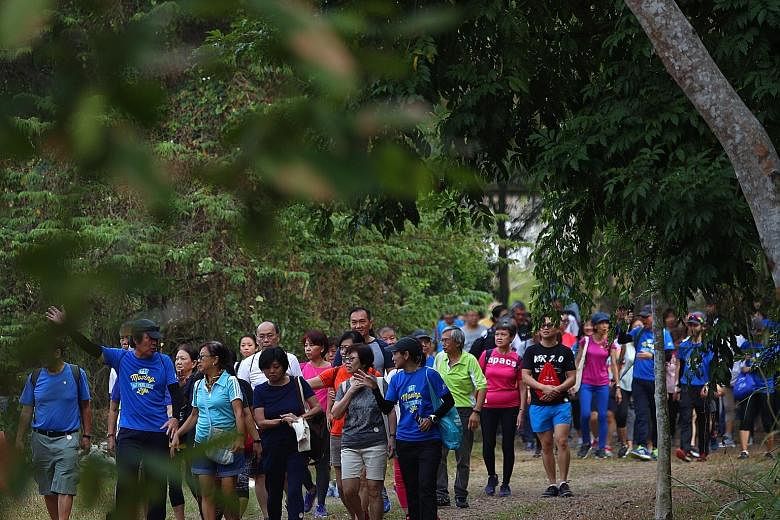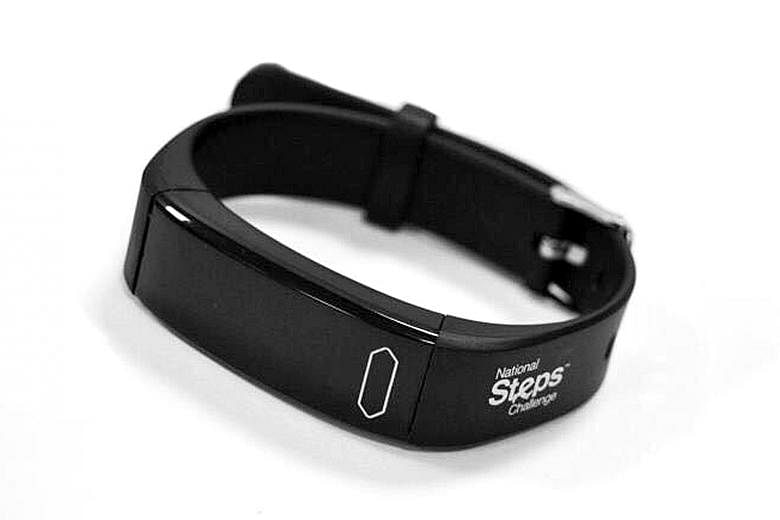The roll-out of a national fitness challenge by the Health Promotion Board (HPB) was found to have wasted $5.39 million of public funds, due to fitness trackers that were not put to use, the Auditor-General's Office (AGO) has said.
In its annual audit of government accounts, the AGO also flagged that erroneous claims paid to ineligible officers or pensioners over a period of more than two years which were administered by the Public Service Division (PSD) resulted in the possible overpayment of around $500,000.
The AGO detailed these and other findings in a report released yesterday on government accounts for the 2020/2021 financial year. It issued an unmodified audit opinion on the government's financial statements, as well as those of three statutory boards, four government-owned companies and two other accounts. The AGO also carried out selective audits of eight statutory boards whose books were audited by external parties.
The Ministry of Finance (MOF) said the audit report is an independent verification that the Government's accounts are reliable and prepared in accordance with the law. But it also acknowledged there is room to do better.
The AGO flagged lapses in five broad areas.
One, management of operations and weaknesses in controls.
For the HPB, its lapses pertained to the National Steps Challenge seasons 1 to 5, which ended between one and five years prior to the audit. The AGO's checks found an excess of 268,000 fitness trackers valued at $4.26 million in total.
Following this, the HPB carried out a full stock count in January this year, which found 341,000 excess trackers, valued at $5.39 million. The audit office noted that while the stock of trackers was properly accounted for, the HPB's processes were inadequate.
"The receipt and distribution of trackers involved manual processes and multiple external parties. There was no central monitoring of the movement and stock of trackers, records maintained were incomplete, and there was no periodic reconciliation of records with physical stock on hand," it said.
The HPB said yesterday it has taken immediate steps to remediate the lapses and strengthen its processes. "The over-estimation of final demand arose as HPB had pre-emptively topped up its stock of fitness trackers each season based on the observed interest from the public," it added.
The Straits Times learnt that the HPB started offering a one-to-one exchange of fitness trackers for participants from March this year after the AGO flagged the excess.
The board said it went through a review of how to better use its excess trackers and found that it could "broaden" its replacement criteria to replace trackers with expired warranty and usage-related damage such as broken straps.
"Misplaced fitness trackers, on a case-by-case basis, could also be replaced. We hence embarked on the special one-time exchange that commenced in March 2021."
On the lapses in claims administered by the PSD, the AGO said it discovered these erroneous claims while it was auditing medical and dental claims in the civil service.
The office found 9,500 possible erroneous claims paid to ineligible officers/pensioners from Jan 1, 2018 to March 31, 2020. "While this amounted to only 0.3 per cent of the three million claims processed during this period, the estimated possible overpayment by the Government was not small, at around $0.5 million."
The second area of weakness involves IT controls. AGO singled out weaknesses at the Accountant-General's Department and the Accounting and Corporate Regulatory Authority over the management of the privileged operating system user accounts. These give access to more secure parts of an agency's systems, including the ability to make changes to audit logs, change the access of other users and adjust security settings.
For the integrated logistics management system in the Ministry of Home Affairs (MHA), the AGO found there was no segregation of duties for the person reviewing administrator activities and the person performing those activities.
Unauthorised activities could compromise the respective servers and affect the processing and recording of financial transactions in the servers, it said.
A third area of concern involved possible irregularities in records furnished for audit.
The AGO found that at the Ministry of Culture, Community and Youth, some supporting documents for claims appeared to have been photocopies, with alterations made to the dates and duration of services rendered. At the Ministry of Education (MOE) and MHA, the AGO said it came across instances of supporting documents created or even backdated to satisfy queries.
For the Housing and Development Board, it was found that quotations for some items could have been created or altered to give the impression that they were obtained from other suppliers.
The agencies have carried out investigations and lodged police reports where appropriate, the AGO said, adding that they took its observations seriously and were committed to addressing lapses.
The fourth area of weakness was in procurement and contract management.
The audit found a Maritime and Port Authority of Singapore officer had detailed discussions with a tenderer to make significant changes to its proposal, and had informed the tenderer to start work even before the tender was awarded.
For Singapore Polytechnic (SP), the AGO found that SP did not put up required reports to the central government authority concerning two tenderers which had withdrawn their bids after the close of tenders, but before the tenders were awarded - a serious matter and ground for debarment.
The fifth area of concern was facility management contracts.
The AGO had conducted a thematic audit on facility management contracts under MOE and MHA. It found policies and procedures to manage these contracts, but also areas for improvement.
These include strengthening controls and supervision.
For MOE, the AGO said there could be further aggregation of procurement for services commonly used by schools. For MHA, it flagged a need to strengthen its oversight of contractors' compliance with contract requirements and to ensure that contract variations were put up for deviations.



